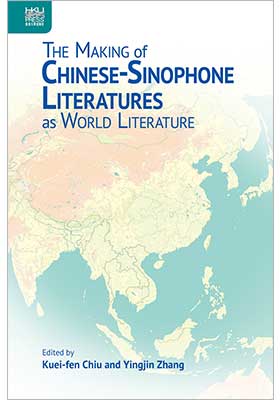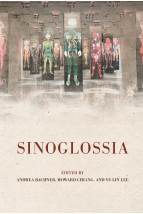The Making of Chinese-Sinophone Literatures as World Literature
(作為世界文學的華文文學)
Edited by Kuei-fen Chiu and Yingjin Zhang
ISBN : 978-988-8528-72-1
Literary Studies
January 2022
Ebooks
Also Available on
In The Making of Chinese-Sinophone Literatures as World Literature, Kuei-fen Chiu and Yingjin Zhang aim to bridge the distance between the scholarship of world literature and that of Chinese and Sinophone literary studies. This edited volume advances research on world literature by bringing in new developments in Chinese/Sinophone literatures and adds a much-needed new global perspective on Chinese literary studies beyond the traditional national literature paradigm and its recent critique by Sinophone studies. In addition to a critical mapping of the domains of world literature, Sinophone literature, and world literature in Chinese to delineate the nuanced differences of these three disciplines, the book addresses the issues of translation, genre, and the impact of media and technology on our understanding of “literature” and “literary prestige.” It also provides critical studies of the complicated ways in which Chinese and Sinophone literatures are translated, received, and reinvested across various genres and media, and thus circulate as world literature. The issues taken up by the contributors to this volume promise fruitful polemical interventions in the studies of world literature from the vantage point of Chinese and Sinophone literatures.
Kuei-fen Chiu is chair professor of Taiwan literature and transnational cultural studies at National Chung Hsing University in Taiwan. She is the co-author of New Chinese-Language Documentaries: Ethics, Subject and Place (2015) and co-editor of Taiwan Cinema, International Reception, and Social Change (2017).
Yingjin Zhang is distinguished professor of comparative literature at University of California, San Diego, as well as visiting chair professor of humanities at Shanghai Jiao Tong University, China. He is the author of Cinema, Space, and Polylocality in a Globalizing China (2010) and co-editor of Locating Taiwan Cinema in the Twenty-First Century (2020).
Contributors
Andrea Bachner is professor of comparative literature and
director of the East Asia Program at Cornell University.
Satoru Hashimoto is assistant professor in the Department of
Comparative Thought and Literature at Johns Hopkins University.
Michel Hockx is professor of Chinese literature and director
of the Liu Institute for Asia and Asian Studies at the University of Notre
Dame.
Wendy Larson is professor emerita of East Asian languages
and literature at the University of Oregon, Eugene.
Tong King Lee is associate professor of translation at the
University of Hong Kong.
Shu-mei Shih is the inaugural Edward W. Said Professor of
Comparative Literature (2019–2022) and professor of Asian languages and
cultures and Asian American studies at the University of California, Los
Angeles.
Mingwei Song is associate professor of Chinese literature at
Wellesley College.
Andrea Mei-Ying Wu is professor of children’s literature and
Taiwanese literature at National Cheng Kung University in Taiwan.
Zhang Longxi is currently chair professor of comparative literature
at the City University of Hong Kong.
“An outstanding volume full of insights, with chapters by leading scholars from an admirable range of perspectives, Chiu and Zhang’s The Making of Chinese-Sinophone Literatures as World Literature expertly integrates Chinese and Sinophone studies with world literature scholarship, opening numerous possibilities for future analyses of literature, media, and cultural history.” —Karen L. Thornber, Harvard University
“This book is, at once, the best possible introduction to recent debates on world literature from the perspective of Chinese-Sinophone literatures, and a summa critica that thinks through their transcultural drives, global travels, varied worldings, and translational forces. The comparative perspectives gathered here accomplish the necessary and urgent task of reconfiguring both the idea of the world in world literature and the ways we study the inscriptions of Chinese-Sinophone literatures in the world.” —Mariano Siskind, Harvard University





